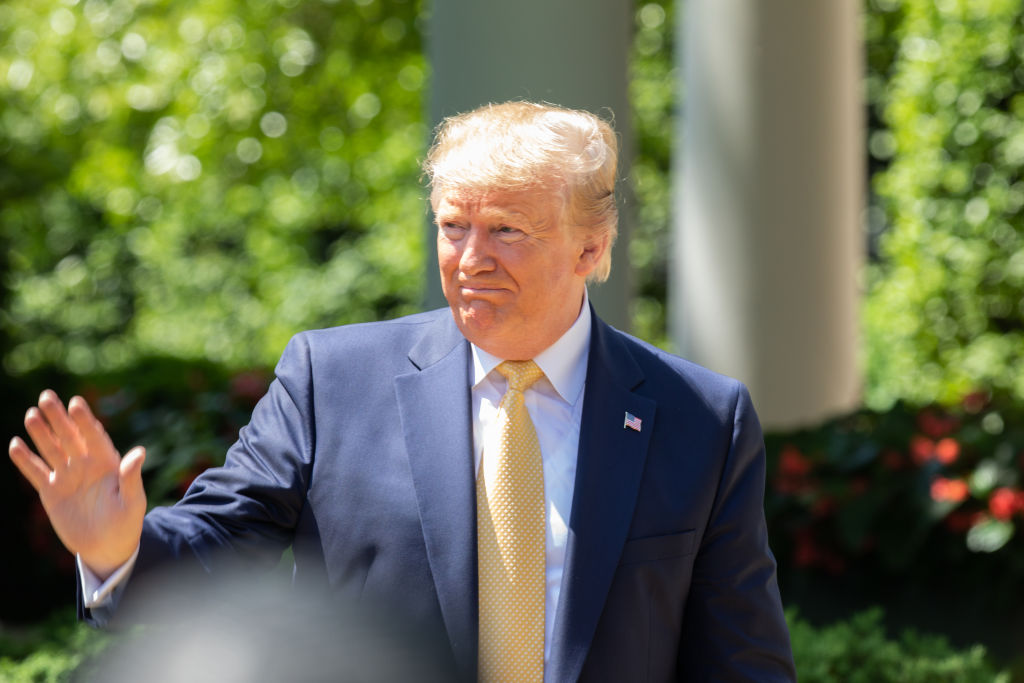
U.S. equities fell by the most since March as investors remained on edge over President Donald Trump’s threat to increase tariffs on billions of dollars of imports from China. Oil dropped and the yen strengthened.
The benchmark S&P 500 staged a late-session recovery to close off the lows for a second consecutive day. Still, all 30 stocks in the Dow Jones Industrial Average ended in the red amid speculation that the imposition of fresh levies would upend the global economy. China’s top trade negotiator still intends to visit Washington later this week as Trump ratchets up pressure to clinch a deal that many market participants had expected was all but done.
“Investor complacency finally caught up with the market as a smooth ride to a trade agreement was all but priced in prior to this week,” said Chris Zaccarelli, chief investment officer for Independent Advisor Alliance. “Unfortunately, real life isn’t as simple as that and we’re running into issues as we get closer to the end of trade negotiations.”
The Stoxx Europe 600 Index closed at a five-week low. Korean and Japanese shares slid as both markets reopened after holidays, though stocks in Shanghai and Hong Kong climbed. Bonds in the euro area weaker after the European Commission slashed its growth forecasts for the region and warned that escalating trade tensions could worsen the outlook. Oil was drawn into the trade-war turmoil, dropping toward $60 a barrel.
Investor sentiment remains fragile as traders wait for the next development in the trade dispute between the world’s two biggest economies. China’s government confirmed Tuesday that Vice Premier Liu He would visit the the U.S. for trade talks on May 9 and 10. At the same time, the country was said to be preparing retaliatory tariffs on American imports should Trump carry out his threat of further duties.
“This is a case of “it’s not what you say, it’s what they hear,”’ said Putri Pascualy, managing director for PAAMCO. “The math on risk premia for multiple asset classes have changed.”
Elsewhere, Turkey’s lira and stocks slumped as investors interpreted a decision to redo Istanbul’s municipal vote as yet another manifestation of President Recep Tayyip Erdogan’s influence over independent institutions. The Australian dollar strengthened after the country’s central bank refrained from cutting rates.
Here are some notable events coming up:
The Reserve Bank of New Zealand meets Wednesday. China releases trade data Wednesday, and the U.S. does so on Thursday. South Africa holds national elections Wednesday. China reports on inflation Thursday. The U.S. releases the April CPI report Friday. A Chinese trade delegation is expected to arrive in Washington for talks.These are the main moves in markets:
Stocks
The S&P 500 Index fell 1.7 percent as of 4:02 p.m. New York time, while the Nasdaq Composite Index dropped 2 percent and the Dow Jones Industrial Average slumped 1.8 percent. The Stoxx Europe 600 fell 1.4 percent. The MSCI Emerging Market Index dropped 0.8 percent. The MSCI Asia Pacific Index slumped 0.3 percent.
Currencies
The Bloomberg Dollar Spot Index gained 0.2 percent. The euro fell 0.2 percent to $1.1178 while the yen strengthened 0.5 percent to 110.19 per dollar. The British pound weakened 0.3 percent to $1.3064. The MSCI Emerging Markets Currency Index eased 0.2 percent.
Bonds
The yield on 10-year Treasuries fell two basis points to 2.45 percent. Germany’s 10-year yield fell four basis points to negative 0.04 percent.
Commodities
West Texas Intermediate fell 1.8 percent to $61.12 a barrel, touching the lowest level in more than five weeks. Gold rose 0.3 percent to $1,285 an ounce. The Bloomberg Commodity Index fell 0.7 percent, touching the lowest level in about four months.
More Must-Reads From TIME
- The 100 Most Influential People of 2024
- The Revolution of Yulia Navalnaya
- 6 Compliments That Land Every Time
- What's the Deal With the Bitcoin Halving?
- If You're Dating Right Now , You're Brave: Column
- The AI That Could Heal a Divided Internet
- Fallout Is a Brilliant Model for the Future of Video Game Adaptations
- Want Weekly Recs on What to Watch, Read, and More? Sign Up for Worth Your Time
Contact us at letters@time.com